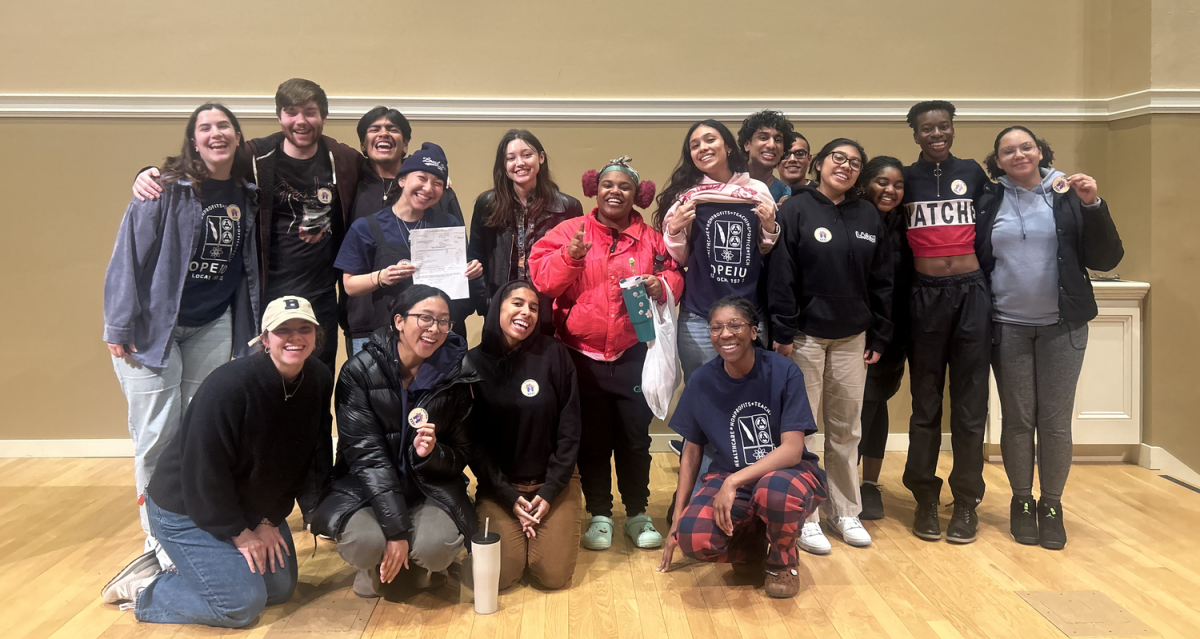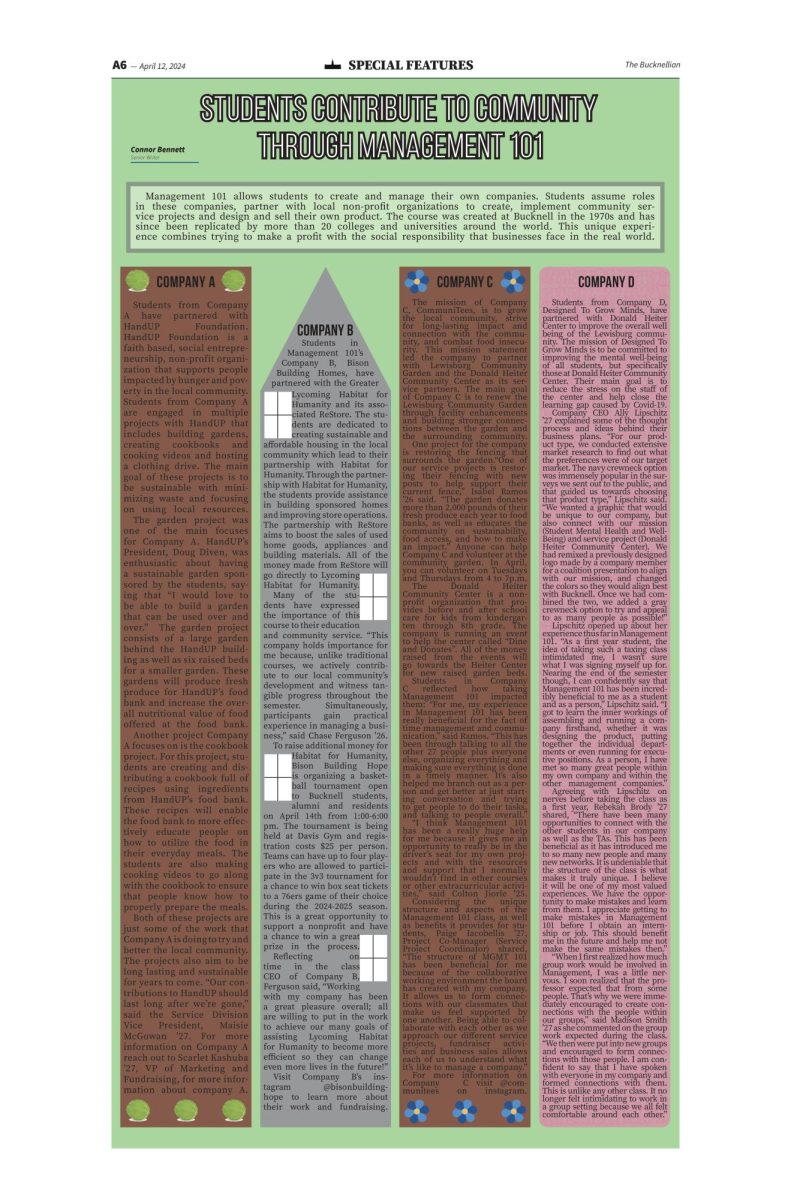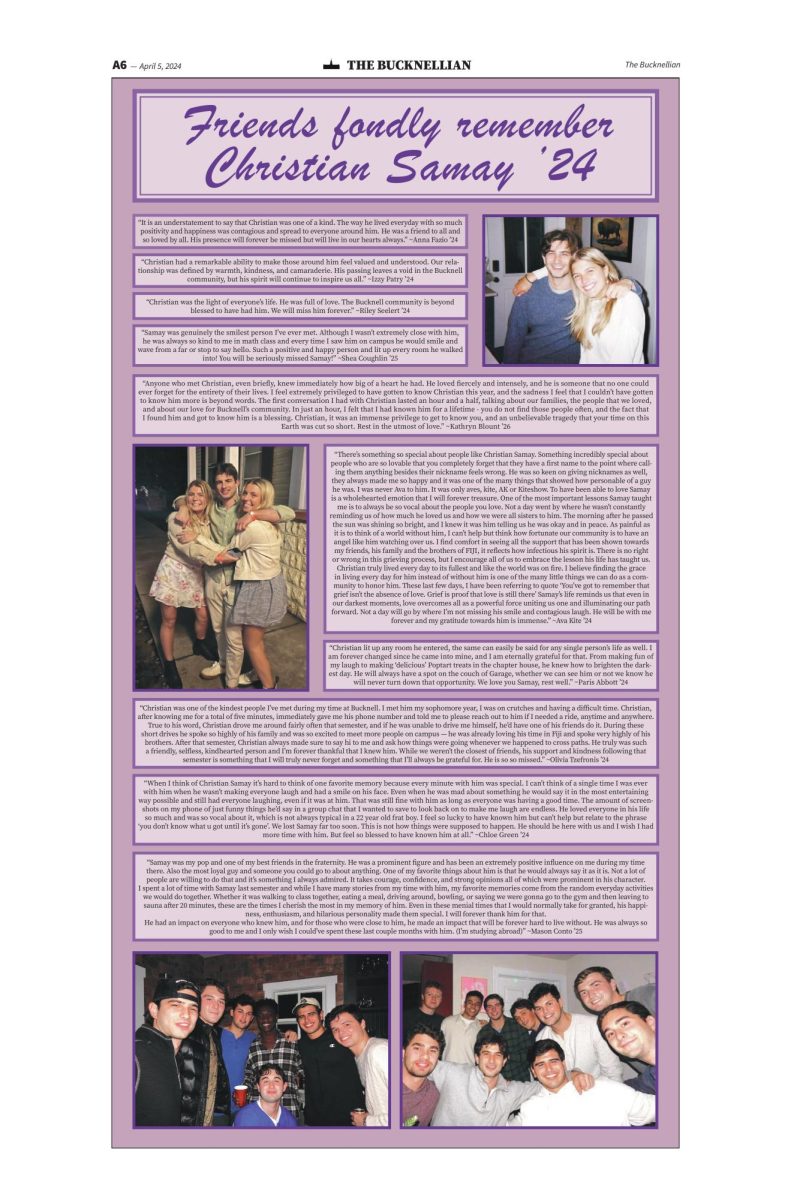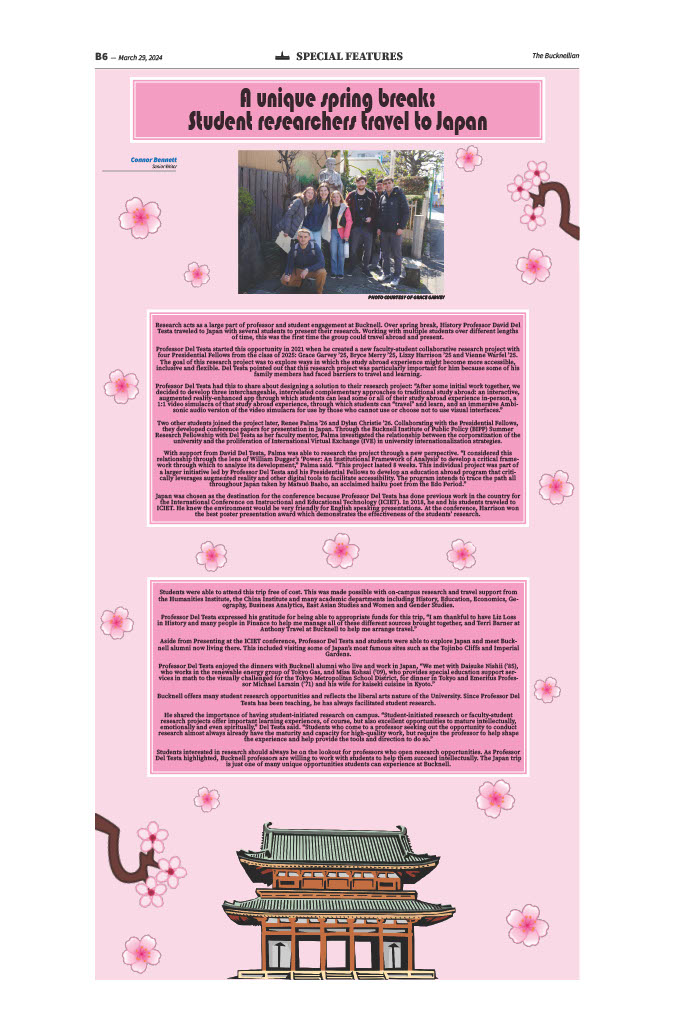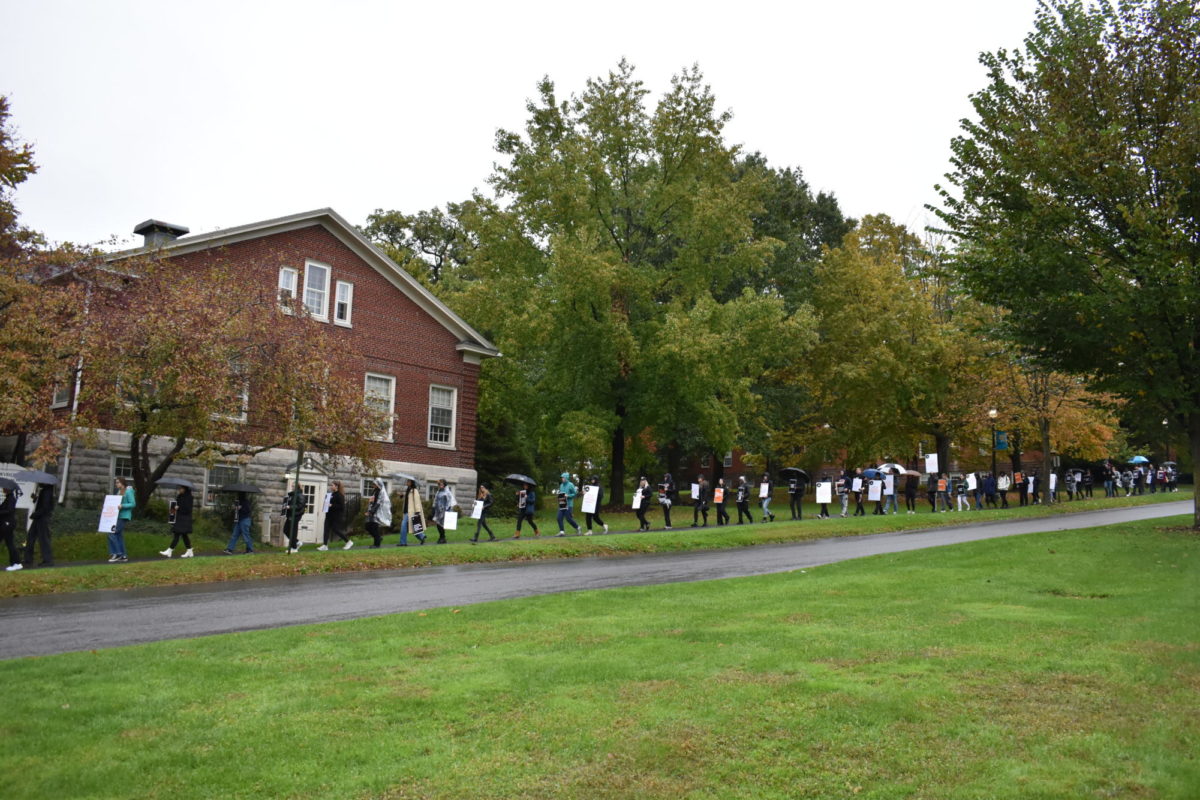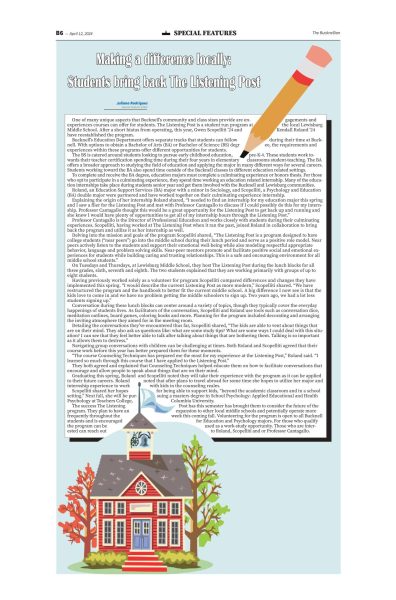Transgender Awareness Week: Advocate calls on students to ‘be agents of change’
November 17, 2016
In honor of Transgender Awareness Week, which is observed from Nov. 14-20, transgender orator, healer, and advocate Lourdes Ashley Hunter was invited to speak on Nov. 15 in the Rooke Science Center. The talk was co-sponsored by ATHENA, the Gender & Sexuality Alliance, Black Student Union, and the Bucknell Institute for Public Policy.
Hunter, the co-founder and national director of the Trans Women of Color Collective (TWOCC), spoke candidly and passionately about her experiences, and those of her peers, as a trans woman of color in the United States. She addressed topics of privilege, identity, institutionalized racism and discrimination and encouraged those in attendance to “be agents of change.”
The solemnity of Hunter’s talk was evident immediately as she began by sharing with the audience the “heavy heart” she brought, having just learned of the brutal assault of a trans woman of color in North Carolina. It marked yet another violent attack on a trans woman this year, with 2016 already seeing the tragic deaths of 25 trans people due to anti-trans violence.
Hunter played a memorial video honoring the trans women killed in 2015 displaying the name, age, and location where each woman was killed. The clip was produced by the TWOCC and was accompanied by an original song with the artist singing: “not another one, not one more sister,” and “say her name … scream it out loud.”
To provide greater context, Hunter highlighted that “being transgender is not a recent development.” Instead, there are traditions and evidence of transgender people throughout history. Hunter credits these people, specifically her black trans women ancestors, as the basis for her hope for “collective liberation.”
In her discussion of history, Hunter underscored how the legacies of colonization and slavery created the institutionalized racism which persists today. She emphasized that white, male-dominated societal structures still exist in today’s culture.
Before continuing with her speech, Hunter stopped herself and told the audience she “would be remiss” if she “didn’t point out that she was speaking to an all white audience with no familiar faces [trans people of color].” She detailed how uncomfortable it is to be in academic settings with little diversity, telling the audience: “when everyone in the room looks like you, you should be uncomfortable.”
The lecture did not end with the typical question and answer session but instead an “affirmation and reflection” period where, following a student response, Hunter addressed the comment she made during her speech on the lack of diversity in the audience. Hunter told the audience that “the shift [to action and change] happens when we’re uncomfortable,” and it allows us to evaluate our discomfort, and discover whether it is rooted in a system or another cause.
“It did make me feel uncomfortable as the speaker pointed out how lacking our attending crowd was of diversity, but it does hold to raise more concern about how people need to stop feeling sorry and start acting to make the world better,” Bryce DiRisio ’20 said.
A call to action was offered, with Hunter telling the students present to “appreciate your positionality” and “recognize your privilege and leverage to create opportunities for others.” She encouraged students to condemn rhetoric of any kind which promotes transphobia, fatphobia, ageism, homophobia because “silence is violence.”
Hunter provided shocking statistics on the disproportionate and severely unjust challenges trans people face everyday. The average income of a transgender person is less than $10,000, and the average life expectancy of a trans woman of color is just 35 years old.
Hunter showcased the very real danger she is in every day for merely “living her truth.” As a 40 year old trans woman of color, Hunter believes she is living on “borrowed time,” and at any time her mother “can get a call saying ‘come out to identify my body.’” She described how in her home state of Michigan, it is legal for her to be denied housing, insurance, or health care due to her gender identity.
“Every breath a trans woman takes is an act of revolution,” Hunter said.
She concluded by explaining how despite the fact that she walks around with a target on her back every day, she refuses to hold her head down and “live in shame, live in silence.”

